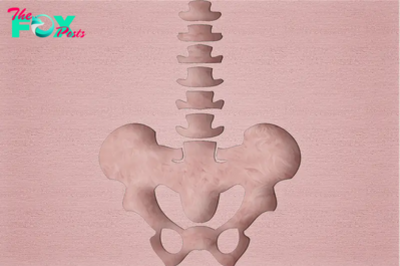Health
How will Donald Trump’s presidency affect abortion rights in Colorado?
Democrats made abortion and reproductive Health care access central to the 2024 elections, and voters in seven states, including Colorado, approved constitutional amendments to guarantee the right to abortion.
Colorado’s abortion rights advocates are hoping the issue will be low on President-elect Donald Trump’s priority list.
Trump: Past & Future
The Colorado Sun is looking at how Donald Trump’s presidency may affect the issues Coloradans care about. We based our story choices on our Voter Voices survey and are using our past reporting to guide our coverage. Look for the full package Sunday.
“There’s a big laundry list for his administration and, fortunately, we’re not on the short list,” said Karen Middleton, president of Cobalt Advocates, a Colorado abortion rights nonprofit that backed Amendment 79, the measure that amended the Colorado constitution to protect access to abortion. “I’m actually hoping that keeping it to the states will be at least an early priority.”
During the presidential campaign, Trump said he would veto a national abortion ban if Congress passed it because a 2022 U.S. Supreme Court decision overturning Roe v. Wade sent the issue back to the states.
Brittany Vessely, executive director of the Colorado Catholic Conference, said she doesn’t expect much federal action aimed at abortion. Instead, she expects court challenges to Colorado’s new constitutional provisions.
“There will not be a federal ban,” said Vessely, who helped lead the opposition to Amendment 79. “I anticipate legal action over 79.”
But some national abortion opponents still hold out hope that Trump will take other measures to curb or even outlaw the procedure. Several national groups this week outlined plans to fight back against changes in Colorado and other states, as well as potential action federal and state governments could take to limit abortion.
Here’s a look at what’s happened and what could happen in the battle over reproductive rights.
Where the law stands now on abortion rights
Nearly 62% of Colorado voters agreed to guarantee access to abortion and other reproductive rights such as birth control in the state Constitution. Coloradans have consistently rejected ballot measures to curb abortion, and now, as a result, most legislative action will also be moot.
Arizona, Maryland, Missouri, Montana, Nevada and New York voters also passed similar constitutional guarantees this month. But such measures failed in Florida, Nebraska and South Dakota. Nebraska voters adopted a ban on abortion in the second and third trimesters with some exceptions.
Thirteen states ban abortion entirely, while another 11 limit the procedure from six to 22 weeks, according to news organization KFF.
☀️ READ MORE
Colorado Sen. Chris Hansen plans to resign from the legislature Jan. 9 as he starts new job as utility CEO
We combed through Colorado’s 2024 election results. Here’s what we found.
Denver district attorney is investigating the leak of voting passwords in Colorado
Vessely predicted the legislature will try to spend taxpayer money for abortions or insurance coverage for the procedure for state employees. She said abortion opponents are exploring legal action over the constitutional amendment.
“It does interject the government in the parent-child relationship and violate parental rights,” she said, although proponents of the amendment say a 2003 parental notification law is not affected by it.

What role might Congress play?
Project 2025, a 900-plus-page policy map for the Trump presidency, mentions abortion numerous times, saying “the next conservative President should work with Congress to enact the most robust protections for the unborn that Congress will support while deploying existing federal powers to protect innocent life and vigorously complying with statutory bans on the federal funding of abortion.”
But to enact a national abortion ban, the Senate would have to abandon its filibuster rule that basically requires 60 votes to end debate and bring a bill to a floor vote.
Colorado’s two senators and its four Democratic U.S. representatives who will return to office in 2025 support abortion rights.
Of the four Republican U.S. representatives who will take office next year, two told The Colorado Sun that they would oppose a national abortion ban: state Rep. Gabe Evans in the 8th Congressional District and Grand Junction attorney Jeff Hurd in the 3rd District.
U.S. Rep. Lauren Boebert, who will represent the 4th District in 2025, said she would support such a ban, as did incoming 5th District Congressman-elect Jeff Crank, who said there would have to be exceptions for rape, incest and to save the life of the mother.
Despite Trump’s veto threat of a ban, abortion opponents are hoping Congress will enact some form of legislation to curb the practice. In addition to outlawing abortion, the groups want to outlaw the drug mifepristone, which is most often used to induce abortions early in pregnancy.
-

 Health4h ago
Health4h ago13 Things to Say When Someone Asks Why You Haven’t Had a Baby Yet
-

 Health15h ago
Health15h ago8 Things You Should Do for Your Bones Every Day, According to Orthopedic Doctors
-

 Health22h ago
Health22h agoWeight loss plans are less effective for many Black women − because existing ones often don’t meet their unique needs
-

 Health1d ago
Health1d ago10 Rules for Post-Election Conversations
-

 Health1d ago
Health1d agoIn hundreds of communities across the US, finding a dentist is like pulling teeth − but in 14 states, dental therapists are filling the gap
-

 Health1d ago
Health1d agoNutritionist’s Guide: Know How to Incorporate Hibiscus into Your Daily Diet
-

 Health1d ago
Health1d agoGet to Know the Health Benefits of Including Arugula in Your Diet
-

 Health2d ago
Health2d agoIs Cupping Therapy the New Wellness Trend?


























